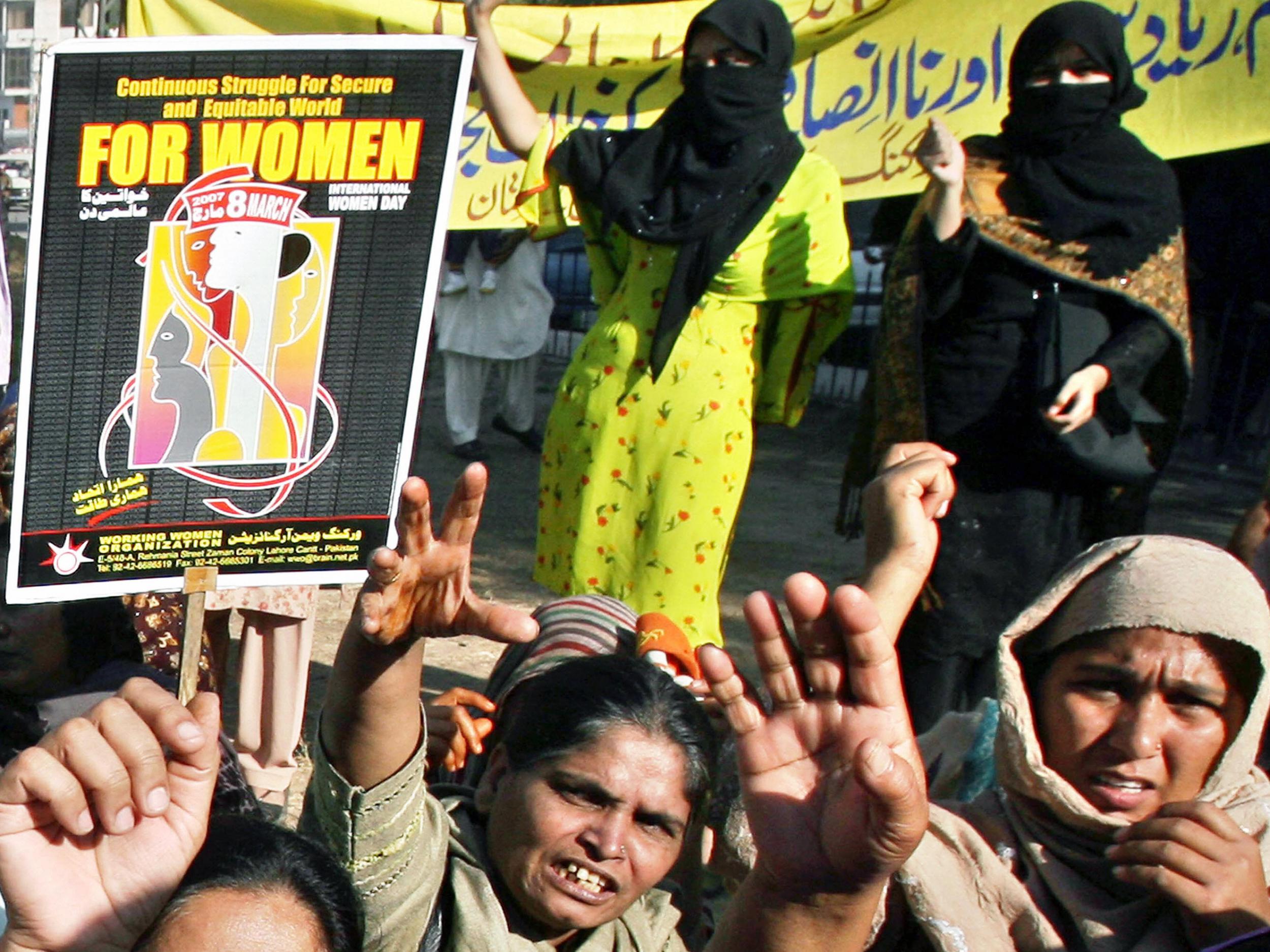Pakistani men can beat wives 'lightly', say Islamic council
'A husband should be allowed to lightly beat his wife if she defies his commands and refuses to dress up as per his desires'

Your support helps us to tell the story
From reproductive rights to climate change to Big Tech, The Independent is on the ground when the story is developing. Whether it's investigating the financials of Elon Musk's pro-Trump PAC or producing our latest documentary, 'The A Word', which shines a light on the American women fighting for reproductive rights, we know how important it is to parse out the facts from the messaging.
At such a critical moment in US history, we need reporters on the ground. Your donation allows us to keep sending journalists to speak to both sides of the story.
The Independent is trusted by Americans across the entire political spectrum. And unlike many other quality news outlets, we choose not to lock Americans out of our reporting and analysis with paywalls. We believe quality journalism should be available to everyone, paid for by those who can afford it.
Your support makes all the difference.A Pakistani Islamic council has sparked outrage after suggesting husbands may “lightly beat” their wives as a form of discipline in their draft of a women’s protection bill.
In the draft bill, released on Thursday, the Council of Islamic Ideology (CII) said it was permissible to beat a woman lightly should he need to punish her.
"A husband should be allowed to lightly beat his wife if she defies his commands and refuses to dress up as per his desires; turns down demand of intercourse without any religious excuse or does not take bath after intercourse or menstrual periods," Pakistan's Express-Tribune reports citing the proposal.
Formed in 1962, the CII is a constitutional body that advises parliament on the compatibility of laws with Sharia.
Its proposed bill is deemed to be a response to the Punjab Protection of Women Against Violence Bill 2015, which redefines "violence" to include "any offence committed against a woman" and provides a toll free help line for women, after the council said it was "un-Islamic".
The 163-point draft bill reportedly bans women from appearing in television or print advertising and female nurses from treating male patients. It would also allow husbands to forbid their wives from visiting other men except relatives.
The draft has been lambasted by Pakistani media and women’s rights activists, who have dubbed the report as “ridiculous”.
The Human Rights Commission of Pakistan (HRCP), called for the council of "zealots" to be disbanded, saying: "It is difficult to comprehend why anyone in his right mind would think that any further encouragement or justification is needed to invite violence upon women in Pakistan,” AFP reports.
The HRCP estimates 70 per cent of Pakistani women have suffered domestic violence.
The country’s largest English-language newspaper, Dawn, published a satirical article on the draft bill with a list of things people could beat other than their wives, including eggs, ketchup bottle bottoms, dirty carpets and “It” - referring to the Michael Jackson hit “Beat it”.
On Thursday, Female members of the Punjab Assembly criticised the CII proposals, the Washington Post reports.
“Through their proposed recommendations they have reflected their mind-set,” said Raheela Khadim, chair of the Punjab Assembly’s standing committee on gender.
“We are talking about holding wife beaters accountable and they are proposing something in complete contrast,” she said.
The CII's chairman has since emphasised the bill is still a draft. Maulana Muhammad Khan Sherani told AFP: "Islam does not allow violence against women. There may be a dispute between husband and wife but that is something separate from torturing wives."
The United Nation's Gender Inequality Index puts Pakistan 147 on a list of 188 countries due to a poor record on women's health, education, political empowerment and economic status.
Join our commenting forum
Join thought-provoking conversations, follow other Independent readers and see their replies
0Comments